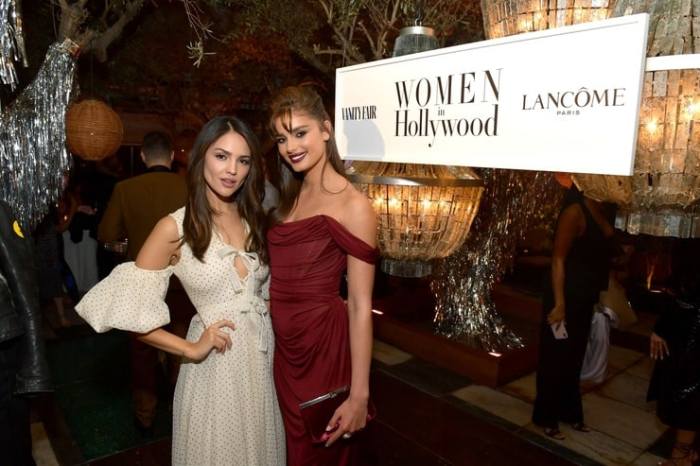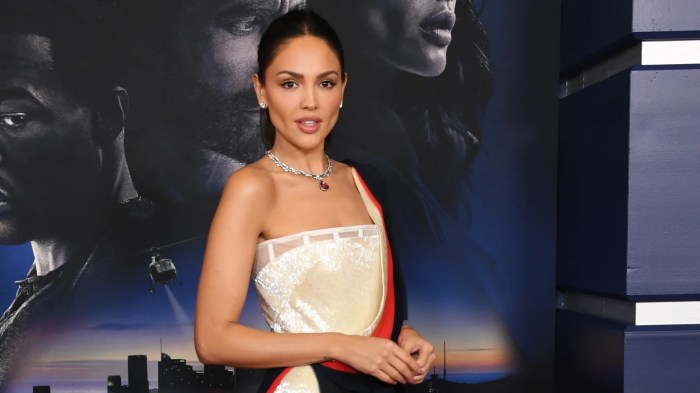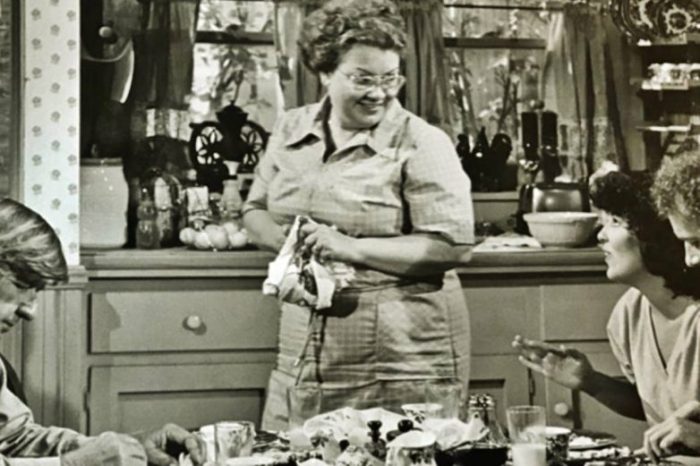In the competitive world of Hollywood, actors often face the challenge of being typecast or rejected for roles based on their physical appearance. For Mexican actress Eiza González, this challenge was particularly acute, as she was frequently told she was “too hot” for certain roles.
This led to a profound impact on her self-esteem and career aspirations, but ultimately, it also ignited a fire within her to advocate for body acceptance and diversity in the entertainment industry.
Throughout her career, González has consistently spoken out against the narrow beauty standards that prevail in Hollywood. She has used her platform to promote self-love and body positivity, and she has become a role model for those who have struggled with similar issues.
Her story is a powerful reminder that beauty comes in all shapes and sizes, and that we should all strive to embrace our unique qualities.
Industry Standards and Bias

The entertainment industry has long been criticized for its narrow standards of beauty and desirability. These standards often favor certain physical attributes, such as thinness, fair skin, and Eurocentric features, over others. This can have a number of negative consequences for actors and actresses, including:
-
-*Limited opportunities
Actors and actresses who do not meet the industry’s beauty standards may find it difficult to get cast in roles. This can lead to a lack of diversity in the entertainment industry and a limited range of stories being told.
-*Body image issues
The constant pressure to conform to unrealistic beauty standards can lead to body image issues for actors and actresses. This can have a negative impact on their mental health and well-being.
-*Stereotyping
The entertainment industry’s narrow beauty standards can perpetuate stereotypes about certain groups of people. For example, the portrayal of thin, fair-skinned women as the ideal of beauty can reinforce the idea that other women are less valuable or desirable.
It is important to challenge the entertainment industry’s narrow beauty standards and to promote a more inclusive and diverse representation of beauty. This will help to create a more equitable and just industry for all.
The Consequences of Perpetuating Narrow Beauty Ideals
The perpetuation of narrow beauty ideals in the entertainment industry can have a number of negative consequences for actors and actresses. These consequences include:
-
-*Limited opportunities
Actors and actresses who do not meet the industry’s beauty standards may find it difficult to get cast in roles. This can lead to a lack of diversity in the entertainment industry and a limited range of stories being told.
-*Body image issues
The constant pressure to conform to unrealistic beauty standards can lead to body image issues for actors and actresses. This can have a negative impact on their mental health and well-being.
-*Stereotyping
The entertainment industry’s narrow beauty standards can perpetuate stereotypes about certain groups of people. For example, the portrayal of thin, fair-skinned women as the ideal of beauty can reinforce the idea that other women are less valuable or desirable.
It is important to challenge the entertainment industry’s narrow beauty standards and to promote a more inclusive and diverse representation of beauty. This will help to create a more equitable and just industry for all.
Body Image and Self-Acceptance
Being repeatedly labeled as “too hot” took a toll on Eiza González’s body image. She began to question her worthiness and attractiveness, wondering if her appearance was overshadowing her talent. This negative self-perception affected her confidence and made her hesitant to pursue certain roles or opportunities.
Self-Acceptance and Resilience
Despite the challenges, González’s experiences ultimately led to her personal growth and resilience. She realized that her worth was not solely defined by her appearance and that true beauty came from within. Through therapy and self-reflection, she learned to accept her body and embrace her unique qualities.
Representation and Diversity
The entertainment industry has a long history of underrepresentation and lack of diversity. This has resulted in a narrow and unrealistic portrayal of society, which has had a negative impact on audiences and the industry itself.
Eiza González’s experiences highlight the need for a more inclusive and accepting approach to casting. By casting actors from diverse backgrounds, the entertainment industry can create more authentic and relatable stories that reflect the real world.
Benefits of Representation and Diversity
- Creates more authentic and relatable stories.
- Promotes understanding and empathy among different cultures.
- Inspires young people from all backgrounds to pursue their dreams.
- Makes the entertainment industry more inclusive and welcoming.
Overcoming Obstacles and Perseverance

Despite facing rejection and being told she was “too hot” for certain roles, Eiza González remained determined to pursue her acting career. She recognized that the industry’s standards were narrow and biased, but she refused to let that discourage her.
Coping with Rejection
González developed strategies to cope with the constant rejection she faced. She focused on her strengths and talents, believing that she had something unique to offer the industry. She also sought support from friends, family, and mentors, who encouraged her to keep going.
Maintaining a Positive Outlook
González maintained a positive outlook by setting realistic goals and celebrating her successes, no matter how small. She also learned to separate her self-worth from her career, recognizing that her value as a person was not defined by her acting achievements.
Overcoming Obstacles
González’s perseverance paid off when she eventually landed breakout roles in films like “Baby Driver” and “Godzilla vs. Kong.” She proved that her talent and determination could overcome the industry’s narrow standards.
The Power of Storytelling

Eiza González’s story is a powerful example of how sharing personal experiences can inspire and empower others. By speaking out about her struggles, she has helped to break down stereotypes and promote acceptance. Her story is a reminder that we all have a voice and that we can use it to make a difference in the world.
The Importance of Sharing Personal Experiences
Sharing personal experiences is important for several reasons. First, it can help to break down stereotypes and promote acceptance. When people hear stories from others who have faced similar challenges, they are more likely to understand and empathize with them.
This can lead to greater acceptance and understanding of diversity.Second, sharing personal experiences can help to empower others. When people hear stories of others who have overcome adversity, they are more likely to believe that they can overcome their own challenges.
This can lead to greater resilience and self-confidence.Third, sharing personal experiences can help to create a sense of community. When people share their stories, they are connecting with others who have had similar experiences. This can lead to a sense of belonging and support.
Social Media and Body Positivity
Eiza González has harnessed the power of social media to promote body positivity and self-love, using her platform to challenge societal beauty standards and inspire others to embrace their own unique bodies.
Through her social media accounts, González regularly shares unfiltered photos and videos of herself, showcasing her natural beauty and celebrating her curves. She has spoken out against unrealistic beauty standards and encouraged her followers to focus on health and self-acceptance rather than striving for unattainable ideals.
Sharing Personal Experiences
González has shared her personal experiences with body image issues, revealing that she has struggled with self-doubt and negative body thoughts in the past. By sharing her own journey, she has made it clear that body positivity is not just about looking a certain way, but about embracing one’s body with love and compassion, regardless of its shape or size.
Advocacy and Activism
González’s personal experiences with body shaming and discrimination in the entertainment industry ignited a passion within her to advocate for body acceptance and diversity.
She actively uses her platform to speak out against unrealistic beauty standards and promote a more inclusive and body-positive industry. González has collaborated with various organizations and initiatives dedicated to empowering women and promoting self-love.
Body Image Advocacy
- In 2020, González joined forces with the National Eating Disorders Association (NEDA) as an ambassador. She shares her story and advocates for eating disorder awareness and prevention.
- González has partnered with Dove’s #RealBeauty campaign, which celebrates diverse beauty and challenges narrow beauty ideals.
- She has used her social media platforms to share unedited photos of herself, encouraging her followers to embrace their own bodies and reject unrealistic beauty standards.
Diversity and Inclusion
- González is a vocal supporter of increasing representation and diversity in the entertainment industry. She believes that everyone deserves to see themselves reflected on screen and in the media.
- She has been involved in initiatives such as the “Inclusion Rider,” which encourages actors to use their contracts to negotiate for more diverse casting and production teams.
- González has also spoken out against the lack of Latinx representation in Hollywood and advocated for more opportunities for actors of color.
Future Impact and Legacy
Eiza González’s advocacy and activism have the potential to leave a lasting impact on the entertainment industry and society as a whole. Her outspokenness about the challenges she has faced as a Latina actress who is often perceived as “too hot” has helped to raise awareness of the bias that exists against women of color in the industry.
González’s story is also inspiring future generations to challenge beauty standards and embrace diversity. Her message of self-acceptance and body positivity is resonating with young people who are tired of being told that they need to conform to a narrow ideal of beauty.
González is showing them that it is possible to be successful and beautiful, even if you don’t fit into the traditional mold.
González’s Impact on the Entertainment Industry
- González’s advocacy has helped to raise awareness of the bias that exists against women of color in the entertainment industry.
- Her outspokenness has encouraged other actresses to speak out about their own experiences with discrimination.
- González’s work is helping to create a more inclusive and diverse entertainment industry.
González’s Impact on Society
- González’s message of self-acceptance and body positivity is resonating with young people who are tired of being told that they need to conform to a narrow ideal of beauty.
- González is showing young people that it is possible to be successful and beautiful, even if you don’t fit into the traditional mold.
- González’s work is helping to create a more accepting and tolerant society.
Call to Action
Let’s all take a moment to reflect on our own perceptions of beauty and diversity. Do we truly embrace and celebrate the richness of human variation? Or do we still hold onto outdated and narrow standards that exclude and marginalize others?
Creating a more inclusive and accepting society requires collective effort. Here are a few ways we can all contribute:
Challenging Societal Norms
- Question the narrow beauty standards portrayed in media and popular culture.
- Celebrate and amplify diverse voices and perspectives that challenge dominant narratives.
- Support initiatives and campaigns that promote body positivity and self-acceptance.
Educating Ourselves
- Learn about the history of beauty standards and their impact on society.
- Engage with content that celebrates diversity and challenges stereotypes.
- Attend workshops or seminars on unconscious bias and inclusive practices.
Promoting Representation
- Support businesses and organizations that prioritize diversity and inclusion.
- Advocate for equitable representation in all spheres of society, from media to workplaces.
li>Share and amplify stories and experiences of individuals from diverse backgrounds.
Last Word
Eiza González’s journey is an inspiring example of how we can overcome adversity and achieve our dreams. By speaking out against the unrealistic beauty standards that exist in the entertainment industry, she has helped to create a more inclusive and accepting environment for all actors.
Her story is a reminder that we should all be proud of who we are, and that we should never let anyone tell us that we are not good enough.
Q&A
What are some of the specific roles that Eiza González lost out on due to being perceived as “too hot”?
González has lost out on roles in films such as “The Hateful Eight” and “Baby Driver” due to her perceived sex appeal. She has also been told that she is “too hot” for roles in television shows such as “Game of Thrones” and “The Walking Dead.”
How has being labeled as “too hot” affected González’s body image and self-acceptance?
González has said that being labeled as “too hot” has led to her struggling with body image issues and self-acceptance. She has also said that it has made her feel like she is not taken seriously as an actress.
What are some of the ways that González has overcome the challenges she has faced?
González has overcome the challenges she has faced by speaking out against the unrealistic beauty standards that exist in the entertainment industry. She has also used her platform to promote self-love and body positivity. Additionally, she has continued to pursue her acting career, despite the challenges she has faced.

